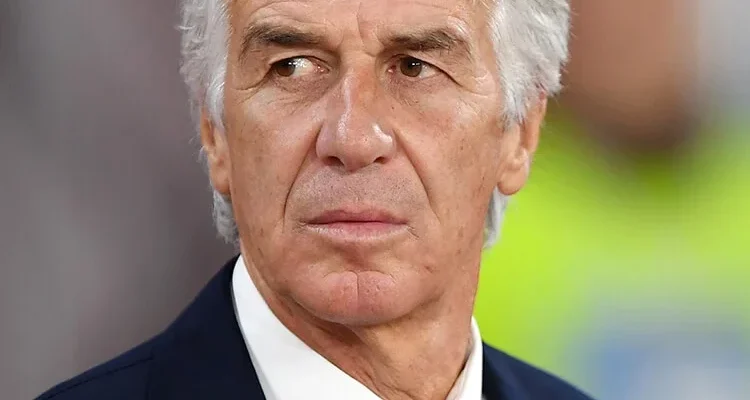In the relentless theatre of professional football, where success is fleeting and scrutiny is constant, few coaches articulate the nuances of the game with the pragmatic clarity of Gian Piero Gasperini. The esteemed coach of Atalanta, renowned for his high-intensity, attacking football, recently offered insights into his managerial philosophy, touching upon mental fortitude, squad dynamics, and the enduring power of veteran talent.
The Unyielding Cycle: Mastering Mental and Physical Readiness
Gasperini emphasizes a critical, perhaps even brutal, truth of top-tier football: yesterday`s triumphs mean little for tomorrow`s challenges. Following a significant fixture, his focus immediately shifts. “We must have the strength to forget victories, immediately thinking about the next game,” he stated, highlighting the non-stop nature of the sport. This isn`t merely a platitude; it`s a strategic imperative. High-stakes matches, such as a derby, while exhilarating, can exact a significant emotional toll, draining “nervous energy more than physical.” The essence of his approach is a continuous psychological reset, a necessity for a team perpetually battling on multiple fronts, particularly when facing a “proactive” and attacking opponent like Lille in European competition.
“We must have the strength to forget victories, immediately thinking about the next game. Football is like this now.”
His observations underscore the often-overlooked mental aspect of preparation. While physical conditioning is paramount, the ability to compartmentalize and redirect focus post-victory or defeat is a hallmark of elite teams. Gasperini’s demand for collective participation and a proactive attitude, even in the early stages of a season, suggests a deep-seated culture of accountability and ambition within his squad.
The Art of the `Super Sub`: Leveraging Squad Depth for Decisive Moments
Perhaps one of the most distinctive aspects of Gasperini`s coaching methodology lies in his approach to squad rotation, particularly in attacking positions. Addressing the concept of player “dualism,” where multiple talents vie for the same spot—a scenario akin to the theoretical Dovbyk-Ferguson dynamic—Gasperini offers a compelling perspective. “Playing many games is an advantage,” he notes, advocating for the strategic rotation of players. He candidly admits that attacking roles are those he changes most frequently, often to devastating effect.
His reference to Luis Muriel, who spent years being “decisive from the bench,” is particularly insightful. It`s a testament to the belief that impact players, those introduced later in a match, can often be “more decisive than those who start.” This isn`t just about managing minutes; it`s about tactical shrewdness. Fresh legs, a different profile, or a player with specific instructions can exploit fatigued defenses or alter the game`s momentum in critical moments. It transforms the traditional “substitute” role into that of a specialized weapon, a concept that has become a cornerstone of modern football management.
Beyond the Years: The Enduring Competitiveness of Veteran Talent
The conversation also veered towards the remarkable longevity of certain athletes, exemplified by players like Olivier Giroud. Gasperini`s admiration for Giroud is palpable, labeling him “an extraordinary player.” This acknowledgement isn`t merely for past glories but for an ongoing capacity to remain “competitive despite their age.” He attributes this phenomenon to advancements in “training and preparation,” which have significantly extended careers that might once have dwindled prematurely.
This perspective offers a subtle critique of ageist biases in football, championing the blend of experience and continued physical prowess. Modern sports science, nutrition, and personalized training regimes have allowed players to maintain peak performance levels well into their thirties, challenging previous notions of a player`s prime. Gasperini, himself a testament to enduring relevance, implicitly endorses the value of seasoned professionals who bring not just skill but also invaluable game intelligence and leadership to the pitch.
Measured Ambition: The Europa League Quest
While ambition is a prerequisite for success, Gasperini advocates for a measured approach. When questioned about the Europa League as a primary objective, he wisely cautioned, “We must wait, we are at the beginning.” While acknowledging the necessity of being ambitious, he stressed the importance of earning “more credibility,” a process he asserts his team is actively pursuing. This pragmatism ensures focus remains on the immediate tasks, building momentum and confidence incrementally, rather than being distracted by distant aspirations.
Conclusion: The Gasperini Paradigm
Gian Piero Gasperini`s insights paint a picture of a coach deeply attuned to the multifaceted demands of contemporary football. From the psychological resilience required to navigate a packed schedule to the strategic deployment of every squad member and the appreciation for enduring talent, his philosophy is a masterclass in pragmatic management. He builds teams that are not just physically capable but mentally robust, tactically flexible, and strategically smart—a paradigm that continues to yield impressive results for Atalanta on both domestic and European stages.









